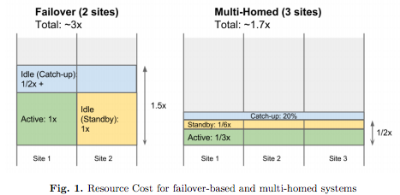0
Asus settles charges over insecure routers and cloud services
Critical security flaws in routers and cloud computing services offered by Asus put hundreds of thousands of customers at risk, the U.S. Federal Trade Commission has charged.Taiwan-based Asus has agreed to settle an FTC complaint that it failed to take reasonable steps to secure the software on its routers, the agency said Tuesday. In addition to well-documented vulnerabilities in the routers, its cloud services led to thousands of customers' storage devices being compromised and exposed their personal information, the agency said.To read this article in full or to leave a comment, please click here
 All the answers you can ask for regarding SDN training & certification, the OCSA & OCSE exams and more from the ONF SDN Training Webinar Q&A are now live! Read it now!
All the answers you can ask for regarding SDN training & certification, the OCSA & OCSE exams and more from the ONF SDN Training Webinar Q&A are now live! Read it now!



 The Academy Award for Best Cloud Service goes to...
The Academy Award for Best Cloud Service goes to...